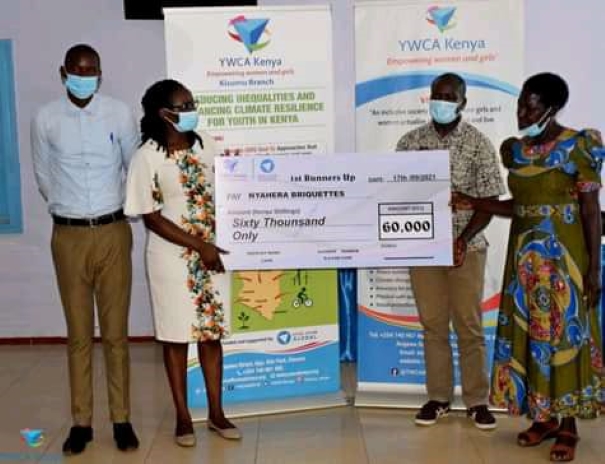Community Based Organizations (CBOs) in Kisumu County have come out to economically empower women in the region and improve their state of living.
Women and girls in the region experience challenges when it comes to starting up businesses and creating employment due to lack of resources and appropriate information.
In an exclusive interview with Kenya News Agency (KNA), Vallary Oyando, Kisumu Branch Manager Young Women Christian Association (YWCA), said they are working with women and young girls to train them with skills on management of businesses and resources available.
Oyando said as an association they are carrying out a project dubbed ‘Dada Soko’, where they support women entrepreneurs by training them and creating a linkage between them and markets outside the country.
“Dada soko operates like Jumia where they open small digital shops on the app where they display pictures of their products; we then buy the products at a percentage agreed. The products are then sent to the United States (US) and put in a warehouse, upon purchase, the money goes to the digital shop,” she explained.
So far, the project in collaboration with Global Soko, has trained 100 women and given them an opportunity to bring their innovative ideas and make money.
Oyando added that this year, they are supporting women by strengthening their capacity enabling them to access funds in partnership with other organizations and institutions.
“In Kisumu, we realized women are not financially empowered so we not only give them skills for entrepreneurship, but also a chance to access funds,” Oyando emphasized.
She disclosed that they are working on climate change projects advocating for women groups to come up with ways to counter climate issues and support them by giving them funds to carry out these projects
“We have worked with groups like Nyahera Briquette women group who make charcoal out of waste which is getting a good reception. We have also worked with other groups from Manyatta estate who have ventured into locally making soap,” she cited.
Over 350 women and girls have been trained but they are still facing challenges when it comes to funds, Oyando said, noting that there is a shrinkage in the donor world and the government is not doing enough in terms of training of women.
She urged women to come up without fear and take up spaces in the business world, share their stories and engage with other women in business.
Easter Oketch, Executive Director Kenya Female Advisory Organization (KEFEADO), said they have a program for young girls where they support them through football.
“This program ‘football for change’, has helped us engage young girls in soccer where they have teams and it has enabled us to protect them from early pregnancy, gender-based violence and get trained to make a living from professional football,” Easter said.
She pointed out that through the economic justice program, they have involved women in the fishing sector, livestock farming and agriculture as a way of ensuring they are economically stable and their rights as women entrepreneurs are protected.
Easter said that by collaborating with women journalists and human rights defenders, they have been able to document the success stories and progress of these women.
According to Grace Orao, the Executive Director for Women Volunteers for Peace (WOVOP), said they have rolled out a peace hive grant program for individuals and groups working with young women and girls.
Orao said the grants will help the women in rolling out initiatives and projects in the rural and informal settlements aimed at empowering and generating income as a form of economic peace.
“We give about Sh25, 000 to the ones who pitch innovative ideas on social, economic and political peace in the region,” Orao noted.
By getting support from donors and sponsors, they are supporting 2000 girls monthly through keeping a girl in school campaign with basic needs.
“These campaigns have helped us support and monitor these and enabled them to focus on their studies and prevent unplanned pregnancies. This way, they have a future and place in the economic world,” she reiterated.
By Evangeline Mola and Lorine Awino


